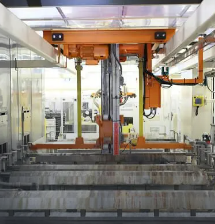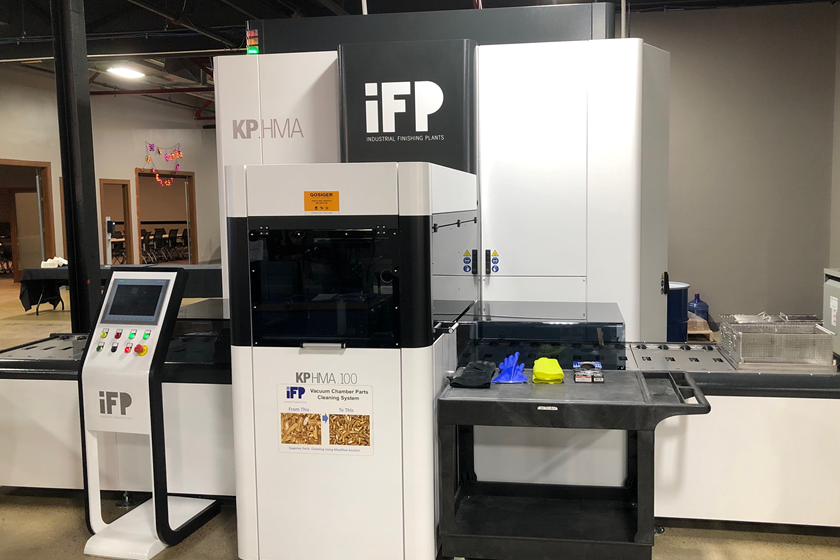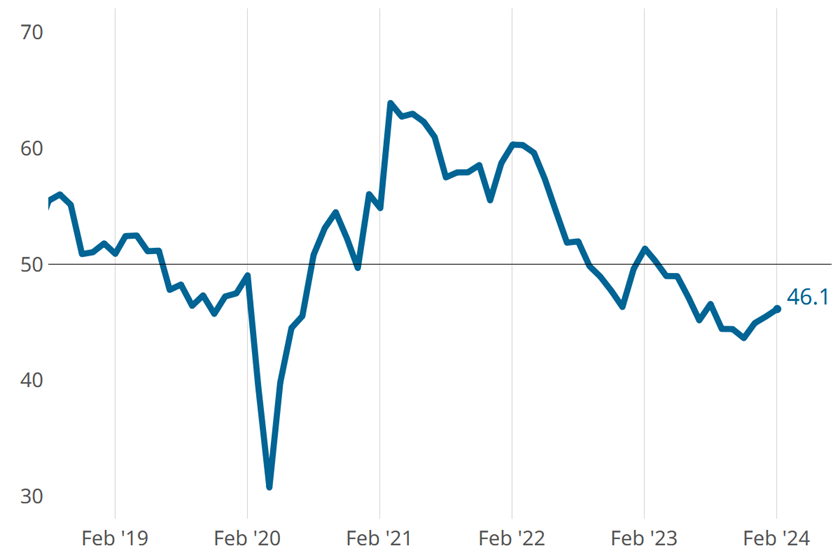A Conversation with Becky Bennett, Precision Plating Co.
Bennett is on the board of directors of the Chicago Midwest Chapter of NASF and on the national board.
#nasf
Precision Plating’s Becky Bennett is the director of chemical and environmental compliance for the Chicago shop, and is also on the board of directors of the Chicago Midwest Chapter of NASF and on the national board. She started at Precision Plating in 1973, while attending college at night to get a degree in business administration.
PF: How has EHS changed over the last decade?
BB: The last decade has seen the strengthening of European influence over the United States’ health and safety programs related to chemical safety. The European Union’s REACH has had a major impact on the United States’ revamping of TSCA and OSHA-instituted compliance for the Globally Harmonized System of Labeling.
PF: How did you get your start in the industry?
BB: I always had a love for chemistry. I took advanced chemistry courses in high school and I would help the teacher prepare indicators and standards for the classes. I was looking for a job close to Morton Grove, Illinois, where I would be moving after I was married. I found an ad in the newspaper for a lab tech, and interviewed on a Friday morning. The lady that interviewed me took me on a “running tour” through the facility. That weekend she called my house and offered me the job to start on Monday morning. I was told the main reason I was hired was because I kept up on the “running tour.”
PF: Why should shops get involved in their local chapters?
BB: In Chicago, it has always been important to have a unified group that could — and would — come together for compliance issues, especially with the regulations as they changed for effluent discharges. Keeping up-to-date with regulations as they are being proposed and being able to provide science-based data in advance of regulations being put into law has always benefited the Chicago electroplaters. The local chapter is a good source of information on how to comply with regulations and to know what types of inspections are taking place in the area.
PF: What’s the best piece of advice you were given?
BB: My father was very supportive of me and my siblings. He always told me that I could do whatever I wanted, and I would succeed, even in a time when women were not usually taking leadership roles. One of his favorite sayings was “If you want to kill time, try working it to death.” For work, I have a lot of respect for Jim Belmonti, who taught me how to plate. He always said “If you cannot clean it, you cannot plate it.” Very basic, but so true.
PF: What was your first job and what did you learn from it?
BB: Working as a cashier at a department store in the linen department. I hated it, but I learned that I did not want to do that the rest of my life, so I better get a college degree. My father suggested I get a degree in business administration because I could use that degree in many fields of work.
PF: If you had $100,000 to give to a charity, which one would it be?
BB: I give to many charities each year. If I need to pick one charity, then I would say our National Parks. Supporting our parks is also a way to help protect animals in the wild — that’s a two-for-one.
PF: What was your first car and what is your dream car?
BB: My first car was a 1966 Pontiac GTO with a 4-speed manual transmission. My dream car after that was a Corvette, which I owned three different ones over the years. Now, I guess I want a high-end convertible. I have not decided which one yet.
PF: What leadership traits have helped you along the way?
BB: I am very organized and detail-oriented. I know this sounds like bragging, but I do think that I am good at analyzing situations and looking at how my decisions will affect situations down the road, not just for the short-term.
PF: What did you want to be when you grew up?
BB: Didn’t everyone want to be an airline stewardess?
PF: Night owl or early bird?
BB: I do not like mornings, but I cannot stay up very late either. However, I do like to watch movies at night.
PF: Favorite place you’ve ever lived?
BB: Atlanta. That was a fun time in my life. My family had a cabin on a lake and a speed boat. I learned to water ski at 7.
PF: What organization or company, aside from your own, do you most admire?
BB: I really like the work that is provided by Smile Train, a nonprofit organization and charity providing free corrective surgery for children with cleft lips and palates in 87 countries, training local doctors and providing hospital funding for the procedures.
PF: If you could trade jobs with anyone for a day, who would it be?
BB: I have always wanted to learn how to fly an airplane, so I guess I want to be an airline pilot.
PF: Where would we find you on a typical Saturday?
BB: In the summer, I will be in my yard gardening or taking the grandchildren on an outing to either the zoo or the park. In the winter or bad weather, I would either be cleaning my house, watching movies or playing board games with the family. I would say every other weekend would encompass a social outing with various friends, either entertaining at one of our homes or going to a new restaurant.
PF: Best way to keep competitive edge?
BB: Keeping your mind and body active. I do not usually stay still for long.
PF: Personal heroes?
BB: No one famous. My parents instilled a good upbringing with family values and a good work ethic. I am a combination of the two for sure. My mother used to say I was a mini Roger. My dad had a degree in chemical engineering that he acquired after four years of service in the Navy.
PF: How do you motivate people?
BB: I have always politely asked my employees to perform a task. I also have never asked them to do any job that I have not done myself. I think you get better results when you respect your employees. I also make it a point to thank my employees after they have completed a job or task.
PF: How do you motivate yourself?
BB: I always want to learn. I think it is important to be challenged, which can be true when trying to stay abreast of the changing environmental regulations.
PF: Three greatest passions?
BB: Spending time with my family is very important to me, and this includes my siblings along with my nieces and nephews. Being able to provide for my children and now helping to give fond memories to my grandchildren. I want to see the world. I love traveling to new places and learning the history about each place.
PF: Most unique office décor?
BB: I have four pictures in my office that were hand-drawn by my youngest daughter when she was 12. They are black and white stenciled drawings. I get asked often where I acquired these.
PF: Best business decision?
BB: Putting as much money as I was legally allowed into my 401K.
PF: Worst business decision?
BB: Buying membership in a travel club.
PF: Biggest management myth?
BB: Only ruthless people make it to the top.
PF: What advice would you give to yourself 10 years ago?
BB: Forgiveness is sometimes hard for me when someone has wronged me or severely abused my trust. However, for my own health, let it go.
PF: Word that best describes you:
BB: Driven
RELATED CONTENT
-
A Process for Alkaline Non-cyanide Silver Plating for Direct Plating on Copper, Copper Alloys and Nickel Without a Silver Strike Bath
Traditionally, silver is electroplated in toxic, cyanide-based chemistry. Due to cyanide’s extreme hazard to human health and environments, developing non-cyanide silver chemistry is essential for the silver electroplating industry. Discussed here is an aqueous, alkaline non-cyanide silver plating technology, which can be directly plated over nickel as well as copper and its alloys. The silver deposits have perfect white color and better anti-tarnishing properties than other non-cyanide silver processes. The silver is plated entirely from the dissolving silver anode and the bath is very stable, and maintains a stable pH level both during plating and idle time. This new non-cyanide silver technology will plate bright silver that is perfectly suitable for electronic, industrial and decorative applications. .
-
Electroplated Tin-Nickel Coatings as a Replacement for Nickel to Eliminate Nickel Dermatitis
This paper is a peer-reviewed and edited version of a paper delivered at NASF SUR/FIN 2013 in Rosemont, Ill., on June 12, 2013.
-
Federal Courts Stay Implementation of OSHA COVID-19 Rules
In response to a backlash of litigation, multiple federal courts have blocked implementation of OSHA and other new vaccine mandates for general industry, the healthcare industry and federal contractors.















